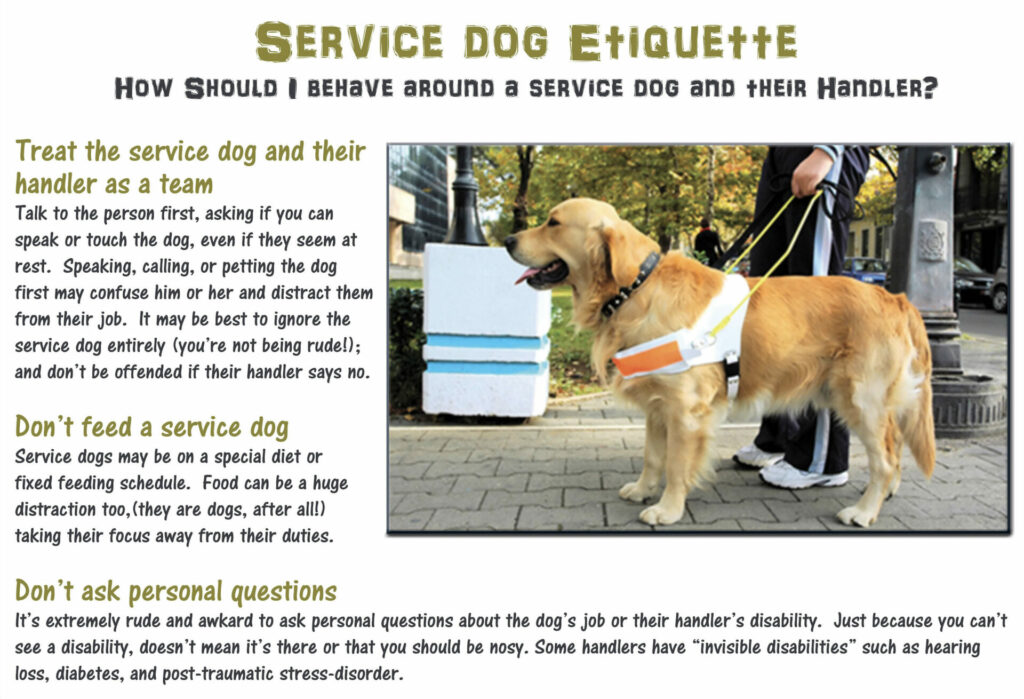About the Author
ANTHONY J. BARBIERI
[email protected]
Anthony J. Barbieri is a shareholder of Kessler Collins, PC in Dallas, Texas. He is a Fellow of the Litigation Counsel of America and a member of the State Bar of Texas, Dallas Bar Association, and the American Bar Association. He is also a Contributing Editor of the network,

Service Animals and Emotional Support Animals
Now boarding all peacocks, roosters, turkeys, snakes, monkeys and any other animal who wants to be “of service”. Emotional support service, that is. These animals supposedly keep their owners calm at 30,000 feet above sea level during air travel. What about the passengers around them?
We’ve heard all sorts of news stories recently about varying types of so-called service animals finding their way onto airplanes, in hospital rooms, casinos and restaurants. But what happens when your tenants bring their emotional-support elephant or alligator to your building? What does the law allow? What are your rights and obligations? This article will help get your paws around this issue so your properties aren’t a total zoo!
Xenia -Please insert this quote as if it was a sidebar somewhere on the first of the pages.
“The greatness of a nation and its moral progress can be judged by the way its animals are treated.” Mahatma Gandhi
AMERICANS WITH DISABILITIES ACT Pursuant to Title II and III of the Americans With Disabilities Act (the “ADA”), a service animal means any dog or miniature horse that is trained to perform tasks for the benefit of an individual with a disability, including a physical, sensory, psychiatric, intellectual, or other mental disability. Tasks performed can include, among other things, pulling a wheelchair, retrieving dropped items, alerting a person to a sound, reminding a person to take medication, or pressing an elevator button. The ADA does not require the dogs or miniature horses to be professionally trained – they can be trained by the owner or any other third person as long as they are trained to perform a valid task under the ADA.
Emotional support animals, comfort animals, and therapy dogs are not service animals under the ADA. Other species of animals, whether wild or domestic, trained or untrained, are not considered service animals either. The tasks per- formed by a service animal must be directly related to the individual’s disability. It does not matter if a person has a note from a doctor that states that the person has a disability and needs to have the animal for emotional support. However, in addition to guide dogs that provide travel aid to persons with severe visual impairments or who are blind, and hearing or signal dogs that alert a person who has a significant hearing loss or is deaf when a sound occurs, the ADA recognizes the psychiatric service dogs assist individuals with disabilities to detect the onset of psychiatric episodes and lessen their effects, as well as dogs that assist people with autism and seizures.
In addition to dogs, entities must make reasonable modifications in policies to allow individuals with disabilities to use miniature horses if the horses have been trained to do work or perform tasks for a disabled person. Some individuals prefer miniature horses over dogs if the handler is allergic to dogs. Miniature horses typically live a little longer than dogs.
However, emotional support, therapy, comfort, or companion animals are not considered service animals under the ADA. These terms are used to describe animals that provide comfort just by being with a person, but since the animals have not been trained to perform a specific job or task, they do not qualify as service animals under the ADA. But as mentioned above, some state or local governments have laws that allow people to take emotional support animals into public places.

Some helpful facts and general rules regarding the use of service animals under the ADA:
• In situations where it is not obvious that the dog is a service animal, a landlord or business owner may ask only two specific questions: (1) is the dog a service animal required because of a disability? and (2) what work or task has the dog been trained to perform? You are not allowed to request any documentation for the dog, require that the dog demonstrate its task, or inquire about the nature of the person’s disability. If you do not follow this rule, you may be liable for discrimination under the ADA.
• Service animals are not required to wear a vest, patch or special harness identifying them as a service animal.
• The owner or handler of the service animal is responsible for caring for and supervising the service animal, which includes toileting, feeding, grooming and veterinary care. A landlord or business owner is not responsible to supervise or care for the animal.
• Service animals must be allowed to accompany their handlers through buffet lines, salad bars, restaurants, and the like.
• The ADA does not require a service dog to be registered or carry any specific papers. If a local law or ordinance requires the animal to register as a service dog, then such registration is likely a violation of the ADA. However, local laws requiring service animals to be vaccina- ted, licensed, etc., are generally in compliance with the ADA Xenia – The same between this and the next bulleted item should not be here.
- It is unlawful to prohibit certain breeds of dogs to access a public place just because of the breed. However, if the service animal poses a direct threat to others, then that particular animal may be excluded from the premises. In other words, you cannot, for example, ban pit pull service dogs from your building, but if a beagle or other gentle dog breed poses a direct threat of harm, then the pooch can be excluded from the premises.
- The ADA requires that service animals be under the control of the handler at all times. The service animal must be harnessed, leashed, or tethered while in public places unless these devices interfere with the service animal’s work or the person’s disability prevents use of these devices (i.e., a service dog used to guide a wheelchair). “Under control” also means that a service animal should not be allowed to bark repeatedly in a quiet place. However, if a dog barks just once, or barks because someone has provoked it, this would not mean that the dog is out of control.

PENALTIES FOR VIOLATING LAWS RELATED TO SERVICE ANIMALS Violations under the ADA may include penal and civil damages, depending on the nature of the complaint. Damages can be as much as $55,000 for the first offense and $110,000 for subsequent offenses. Under the ADA, the Department of Justice may file a lawsuit and obtain a court order compelling a defendant to pay a fine. Likewise, any person who is being subjected to discrimination under the ADA may also file a private suit against the offending person or company.
In addition to the ADA, many state and local municipalities have also enacted laws to penal- ize business owners and landlords for violating laws enacted to ensure that persons living with disabilities have proper access and care.
Many states have also enacted “fake service animal laws”. As of August 2018, twenty-three states enacted legislation to combat pet-owners who falsely claim their pet as a service animal. These laws vary widely between states. In Texas, if an owner misrepresents a service dog, he can end up in the doghouse by being hit with a misdemeanor and punishable by a $300 fine and up to 30 hours of community service. In California, you are barking up the wrong tree if you falsely and knowingly claim that you are an owner or trainer of service animals. If found guilty, this is a misdemeanor, and you can face six months in jail and/or a fine up to $1000.
EMOTIONAL SUPPORT ANIMALS VS. SERVICE ANIMALS Emotional-support animals, a/k/a companion animals or therapy animals are terms used to describe animals that provide comfort just by being with a person. Many experts believe that disabled persons with certain conditions like anxiety, depression, autism or post-traumatic stress can alleviate symptoms with an emotional- support animal. These companion animals do not need training, and an individual can qualify for an emotional support animal with a doctor’s approval. Since companion animals have not been trained to perform a specific task or job, they do not qualify as service animals under the ADA. The ADA does not give individuals with companion animals the same opportunities as service animals to bring the animal with them to public places where pets are prohibited.
SERVICE ANIMALS & HOUSING
Many single-family and multi-family residential landlords have a “no pets” policy. However, under the Fair Housing Act of 1973, “service animals” are not pets, therefore, if a housing policy provides for “no pets”, it does not apply to service animals. Accordingly, service animals are allowed wherever a person may go, including restricted animal areas like food establishments. Landlords cannot collect a pet deposit for a service animal, but a landlord may charge a tenant for property damage due to the damage caused by a service animal. Further, a landlord cannot enforce weight limits or breed restrictions. Contrary to popular belief, landlords can require written verification from the tenant’s health-care provider that they are disabled, but cannot ask for any specifics about the disability, and a landlord can require written verification from the tenant’s health-care provider that the service animal is medically necessary. Landlords can also write warnings or even evict a tenant with an assistance animal is disturbing others, posing a threat to others, or causing considerable damage to the property.
If a housing provider prohibits pets on the property, a tenant may request reasonable accommodations in order for an assistance animal to live there. Reasonable accommodation is when a tenant asks a landlord to change an existing rule or policy to have an equal opportunity to enjoy the unit and property. A tenant may qualify for reasonable accommodations for disabilities if the tenant has a physical or mental impairment that substantially limits one or more major life activities – such as walking, seeing, working, cleaning, dressing, etc.
Although the ADA treats companion animals differently than service animals, the Federal Fair Housing laws treat them similarly. Companion animals do qualify for reasonable accommodations under the Fair Housing Act. If an individual has a verified need for an emotional support animal, the landlord or property manager must provide a reasonable accommodation and allow the animal on the property.
AIRLINE TRAVEL The Air Carrier Access Act (ACAA) requires airlines to allow service animals and emotional support animals to accompany their handlers in the cabin of the aircraft. For evidence that an animal is a service animal, air carriers may ask to see identification cards, written documentation, presence of harnesses or tags, or ask for verbal assurances from the individual with a disability using the animal. If airline personnel are uncertain that an animal is a service animal, they may ask one of the following: (i) what tasks does the animal perform, (ii) what has the animal been trained to do, (iii) describe how the animal per- forms the tasks it has been trained to do.
Individuals who travel with emotional-support animals or psychiatric service animals may need to provide specific documentation to establish that they have a disability and the reason the animal must travel with them. Travelers who desire to take their emotional support animal should contact the airline ahead of time to find out what kind of documentation is required. According to the ACAA, airlines are not required to carry animals of any kind either in the cabin or in the cargo hold. Airlines are free to adopt any policy they choose regarding the carriage of pets and other animals.
Back in 2003, the U.S. Department of Transportation expanded the definition of “service animal” to include any animal that lends emotional support. That opened the floodgates for travelers to treat airplanes like Noah’s Ark. However, the USDOT recently proposed a new rule that would ban untrained emotional support animals. This new rule is open for public comment until July 9, 2020 – so if you feel emotional about the rule, please bark your support for or against it on time.
CONCLUSION
With emotional-support animals becoming more and more prevalent, it is important to know what the animal handler’s rights and duties are. Likewise, from a landlord’s or business owner’s perspective, you must also know your rights and duties. Failure to follow the rules may result in a landlord being responsible for violating the ADA or a similar state or local law. n
Ed. This article originally appeared in the March-April 2020 issue of the network.




